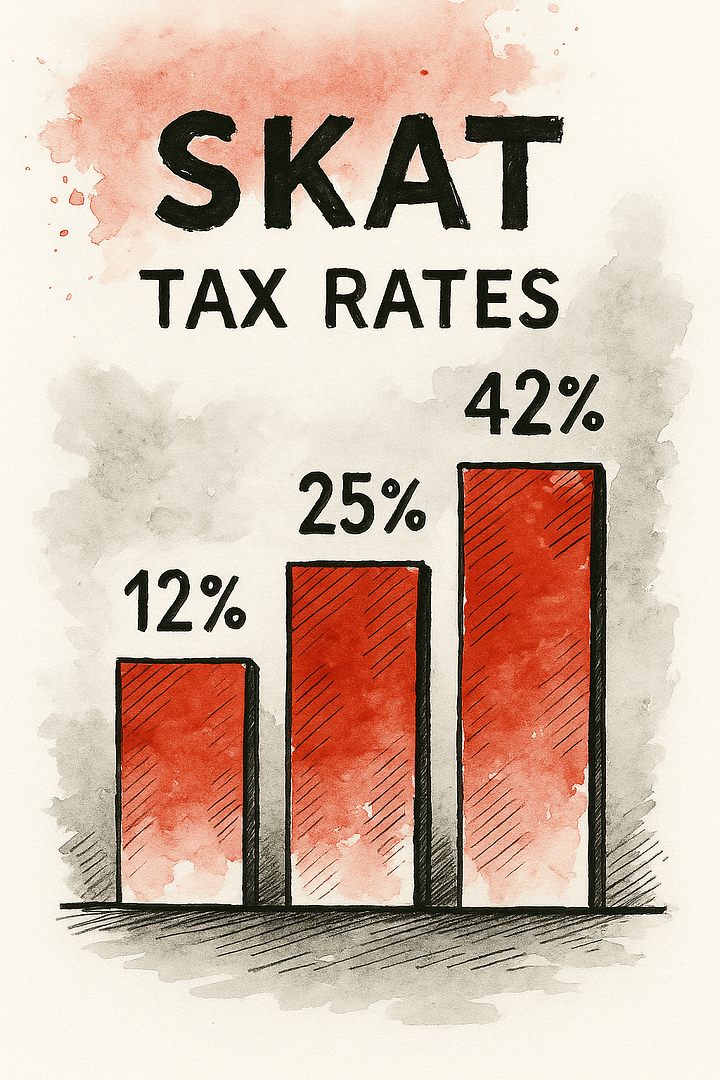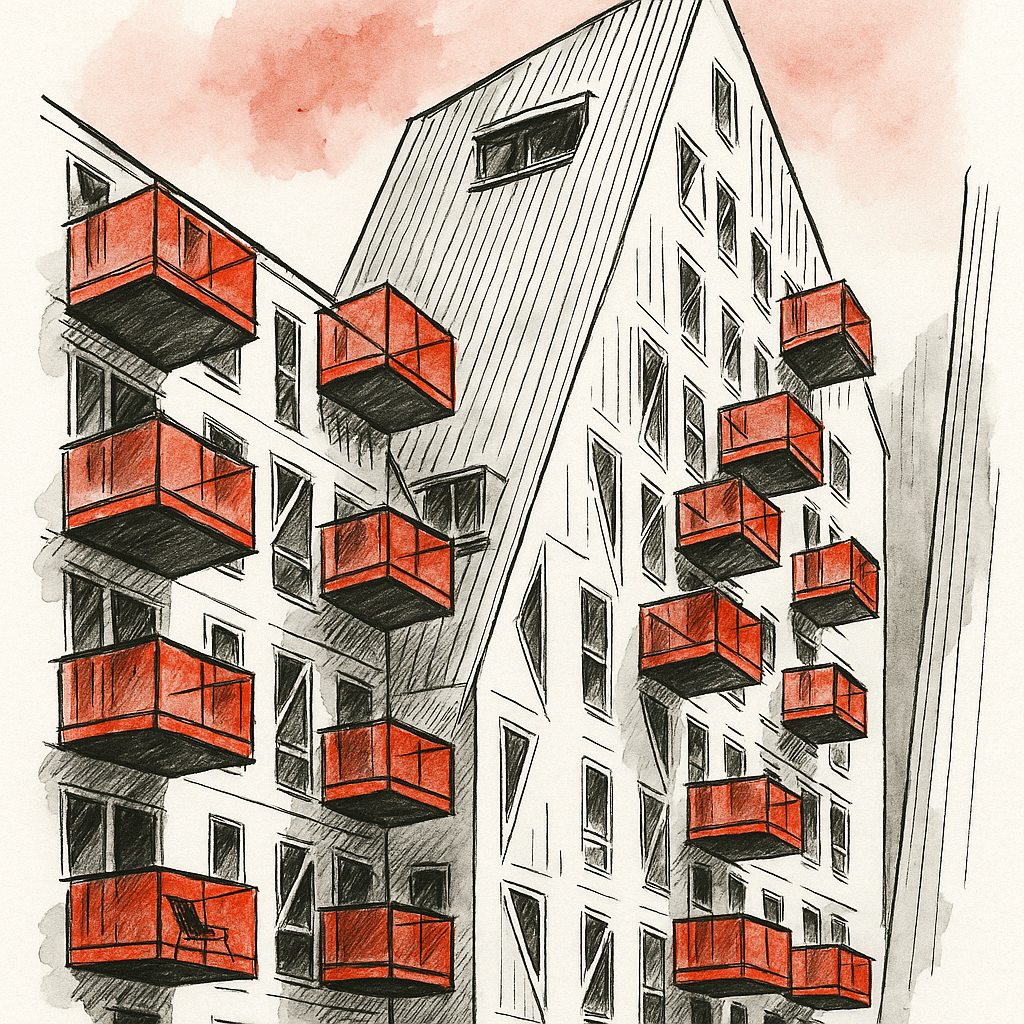Living in denmark in 2025
Learn about housing, cost of living, healthcare, and everything you need for daily life in Denmark.
Work, Live, and Thrive in Denmark
Denmark isn’t just a place to work—it’s a place to build a fulfilling life. With a strong job market, world-class healthcare, and a society that values work-life balance, it’s an ideal destination for professionals and families alike. Safe cities, efficient public transport, and a rich cultural scene make everyday life both easy and enjoyable. Moving here can be a game-changer, but there are a few things to know before you take the leap. Let’s get you started!
What to Know
Cost of Living in Denmark
Denmark is known for its high standard of living, and with that comes a relatively high cost of living, particularly in cities like Copenhagen and Aarhus. Rent is the biggest expense, with a one-bedroom apartment in Copenhagen averaging around 10,000 DKK per month. Groceries, dining out, and transportation are also pricier than in many other European countries, but strong wages and social benefits help balance the scales. If you’re planning to live in Denmark, budgeting wisely and understanding the cost breakdown will help you adjust financially.
Finding Housing in Denmark
The Danish rental market is highly competitive, especially in major cities, so starting your search early is essential. Platforms like BoligPortal and Lejebolig are popular for finding apartments, while cooperative housing (Andelsboliger) can be a more affordable long-term option. Most rentals come unfurnished, deposits are typically three months’ rent, and rental contracts can be strict, so always read the fine print before signing. Expats should also be wary of scams and only use reputable rental websites.
Healthcare System in Denmark
Denmark has a world-class, tax-funded healthcare system, meaning residents with a CPR number receive free medical care for most services. Once registered, you’ll be assigned a general practitioner (GP) who serves as your first point of contact for healthcare. Private healthcare options exist, but they are rarely needed since public services cover most medical needs. EU citizens can access healthcare with their EHIC card, while non-EU residents will need to secure their CPR number before receiving full healthcare benefits.
Public Transport & Commuting
Denmark has an efficient and reliable public transport system, making it easy to get around without a car. The Metro, S-train, buses, and regional trains connect all major cities, and the Rejsekort travel card offers discounted fares for frequent travelers. Biking is also a major part of Danish culture, with Copenhagen being one of the most bike-friendly cities in the world. If you do decide to drive, be prepared for high car taxes and strict parking regulations.
Banking & Finances in Denmark
Setting up a bank account is a priority after moving to Denmark, and you’ll need a CPR number to open one. Popular banks include Danske Bank, Nordea, and Nykredit, all of which offer services in English. Most payments in Denmark are cashless, so expect to use your debit card or mobile payments for daily transactions. Taxes are high, with income tax rates ranging from 38% to 55%, but these contribute to Denmark’s strong social welfare system, including free healthcare and education.
Adjusting to Life in Denmark
Living in Denmark is a rewarding experience, but it requires preparation and adaptation. Understanding the housing market, cost of living, healthcare, and public transport will help you settle in quickly. Once you embrace the Danish way of life—whether it’s cycling everywhere or mastering hygge—you’ll see why Denmark is consistently ranked as one of the best places to live.
Contact/FAQs/Articles
Contact Us Anytime
Reach out to us for personalised advice or to schedule a consultation.
Thinking about moving to Denmark? We’re here to help! Whether you need guidance on work visas, residency permits, housing, or life in Denmark, our team is ready to provide clear, advice tailored to your situation.
FAQs about Moving to Denmark
Your Essential Questions Answered: Everything You Need to Know About Moving to Denmark.
Learn More About Work/Life in Denmark

Understand Danish Taxation and Health Care in 2025
Primary keyword: “Understand Danish Taxation and Health Care” Quick-Read Takeaways 1 │ Why Taxes & Healthcare Are a Package Deal in Denmark Denmark links its digital identity (CPR), tax administration (SKAT) and national health service. No CPR → no tax…

Secure Housing Before You Move to Denmark
Quick-Read Summary 1 | Why “Secure Housing” Is Literally Step One Danish residence-permit rules oblige newcomers to show a permanent address before CPR activation. No address → no CPR → no bank account, pay-cheque, doctor or MitID login. Add in…

Registering with Danish Authorities Is Mandatory
1 | Why Registration Is Non-Negotiable Denmark’s digital public sector runs on the CPR number. Without it you cannot: Failing to register (or registering late) breaks the Folkeregisterloven and may incur fines—plus weeks of frustrating delays. 2 | Legal Requirements…

Building Your Social and Professional Network in Denmark
Establishing and nurturing a strong social and professional network is crucial for both personal and career growth. A robust network opens doors to new opportunities, fosters collaboration, enhances personal development, and supports you during career transitions. This guide will explore…

Embracing Everyday Life in Denmark
Moving to Denmark offers an exciting opportunity to experience a balanced lifestyle, vibrant culture, and exceptional quality of life. Understanding how a typical day unfolds in Denmark can greatly ease your transition and help you integrate smoothly into Danish society….

Navigating the Danish Visa and Immigration Processes
Denmark consistently ranks among the top countries globally for its excellent quality of life, exceptional education system, stable economy, and inclusive society. These factors make Denmark particularly appealing to expatriates, international students, and families looking to relocate. However, navigating the…

Understanding Danish Work Culture
Danish work culture is globally admired for its balanced approach to professional life, openness in communication, and strong emphasis on collaboration and equality. However, adapting to Denmark’s distinctive workplace norms can be challenging for newcomers. This comprehensive guide dives deep…

Special Visas Including Asylum in Denmark
Understanding special visas including asylum in Denmark is essential if you seek protection or specialized residency due to unique circumstances. This step-by-step guide will walk you logically through the entire process, clearly explaining each crucial stage. 1. Types of Special…

Study and Other Visas in Denmark
If you plan to study or stay in Denmark for reasons other than employment or family reunification, understanding the process of obtaining study and other visas in Denmark is crucial. This detailed guide covers everything from eligibility criteria to the…
